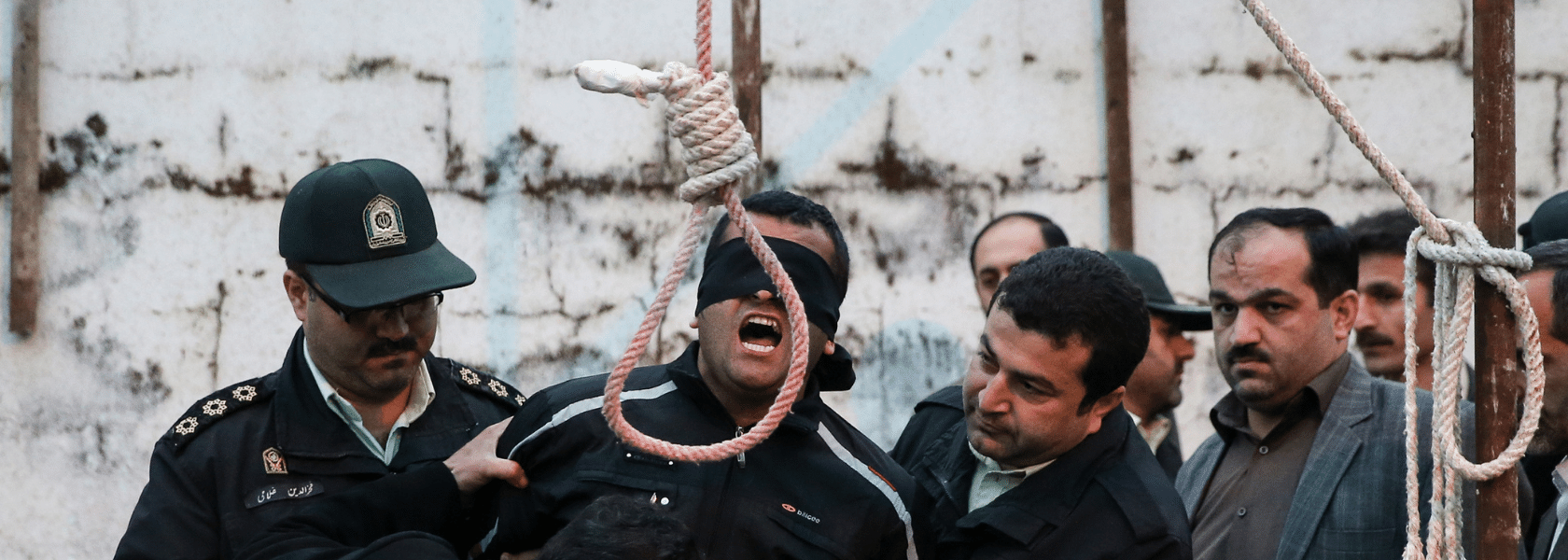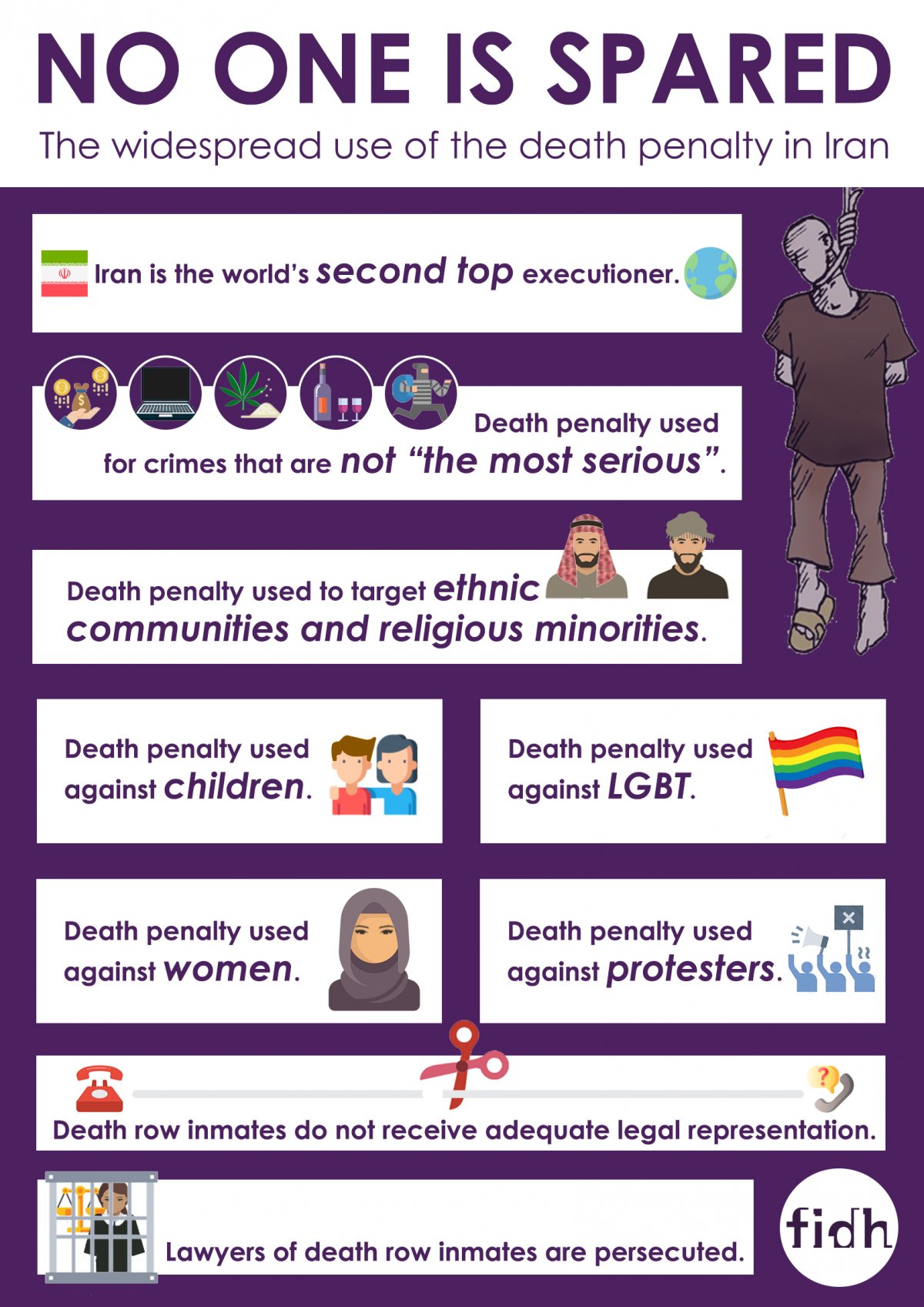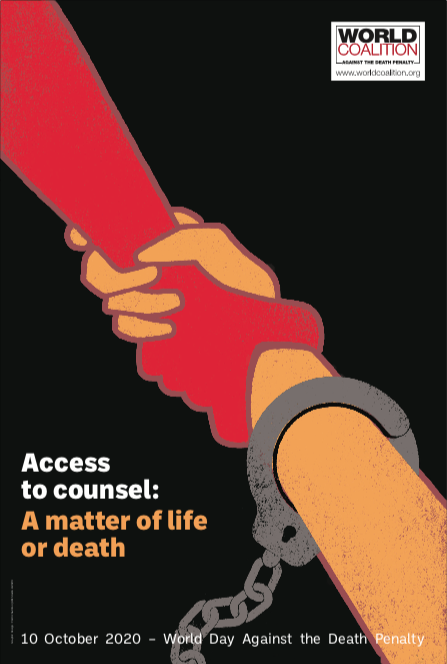The report, titled “No one is spared - The widespread use of the death penalty in Iran,” documents key trends, patterns, and cases related to the application of capital punishment in the Islamic Republic.
The report is released ahead of the 18th World Day against the Death Penalty (10 October). The theme of this year’s World Day focuses on access to effective legal representation for defendants charged with offenses that are punishable by death.
“The unchecked use of the death penalty in Iran is an indelible stain on the country’s human rights record. The government can make concrete progress towards the abolition of this outdated and brutal practice by simply respecting international treaties to which Iran is bound."
For many years, Iran has consistently ranked second on the list of the world’s top executioners, after China. At least 251 people were executed in 2019 and more than 190 in the first nine months of 2020.
Various international human rights monitoring mechanisms have regularly criticized numerous aspects related to the application of the death penalty in Iran for being blatantly inconsistent with fundamental provisions of international law.
The overwhelming majority of capital crimes in Iran fails to meet the threshold of the “most serious crimes” and, as a result, is in contravention with the country’s obligations under the International Covenant on Civil and Political Rights (ICCPR). Capital offenses that do not meet the “most serious crimes” threshold include, but are not limited to: sex-related offenses; religious offenses; political offenses; drinking alcoholic beverages; drug-related offenses; economic offenses; and cyber crimes.
For several decades, Iran has also been the world’s top executioner of children. From 2009 to September 2020, at least 67 executions of juvenile offenders were reported. Iran imposes the death penalty against minors and executes them when they turn 18 or, occasionally, before. The use of the death penalty against minors is in breach of the country’s obligations under the ICCPR and the Convention on the Rights of Child (CRC), both of which expressly prohibit the imposition of capital punishment on individuals who were under the age of 18 when they allegedly committed the crime.
Women are also subject to capital punishment as a result of the discriminatory nature of several laws that directly concern them. Lesbian, gay, bisexual, and transgender (LGBT) individuals can face capital punishment as well because of the criminalization of certain same-sex conduct, which is punishable by death in Iran.
The death penalty in Iran has also been used against members of the country’s ethnic communities - such as Kurds, Arabs, and Baloch - and religious minorities - such as Sunni Muslims, Baha’is, and followers of the Shia Ahl-e Haq sect.
The report also focuses on the link between the denial of the right to a fair trial and the use of the death penalty. In Iran, many death sentences are imposed after proceedings that fall far short of international fair trial standards. Death row prisoners are routinely sentenced on the basis of vague charges and “confessions,” which are usually made under torture or other ill-treatment during pre-trial detention. Defendants who face charges for offenses that are punishable by death are often denied access to lawyers of their choosing.
In addition, Iranian authorities have a long record of persecuting and prosecuting lawyers who represent individuals who are charged with capital offenses. Some lawyers involved in defending death row prisoners, such as human rights lawyer and 2012 Sakharov Prize Laureate Nasrin Sotoudeh, have been punished with imprisonment for their work. Iranian authorities have also been traditionally hostile towards critics of the death penalty, and anti-death penalty campaigners have been frequently repressed.
The report offers numerous recommendations to the government of Iran to make progress towards the progressive abolition of the death penalty for all crimes and in all circumstances.
FIDH, a member of the World Coalition Against the Death Penalty, and LDDHI oppose the death penalty for all crimes and in all circumstances, and actively work towards its abolition worldwide.
October 10 is the 18th World Day Against the Death Penalty. To know more, read our article:



